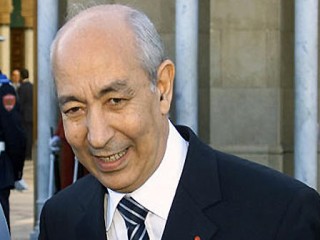
Driss Jettou biography
Date of birth : 1945-05-24
Date of death : -
Birthplace : Al Jadida, Morocco
Nationality : Moroccan
Category : Politics
Last modified : 2010-07-22
Credited as : Politician and businessperson, Prime Minister of Morocco, World's political leader
0 votes so far
Technocrat Driss Jettou was appointed Prime Minister of the Kingdom of Morocco in September 2002. After a respectable business career in the private sector and working for Moroccan business interests, Jettou quickly worked his way up through Moroccan government. Not affiliated with any political party himself, Jettou's first challenge as prime minister was to bring a sense of solidarity to the nation's parliament, which was made up of a multiplicity of minority political parties.
Worked in Business
Jettou was born on May 24, 1945 in Al Jadida, Morocco. He graduated with a bachelor's degree in mathematics from Kawarismi College in Casablanca in 1964, and went on to the Sciences University in Rabat where he earned a master's degree in chemical and physical sciences in 1966. Jettou left Morocco to study business at London's Gordwainers College, where he earned a degree in business administration and management in 1968.
Until the early 1990s, Jettou spent his career working in business. He worked for several companies in the private sector before ultimately working for the King of Morocco as chairman of one of the royal holding companies, and as president of the General Confederation of Enterprises in Morocco (CGEM). He also served as vice-president of the Moroccan Association of Exporters (ASMEX).
Appointed Minister of Trade and Industry
Owing to his long and distinguished career in business, Jettou was appointed Minister of Trade and Industry, under Moroccan Prime Minister Karim Lamrani on November 11, 1993. He was re-appointed on June 9, 1994 under Lamrani's successor, Abdellatif Filali. Little more than one month later, on July 17, 1994, Jettou received a promotion--he was appointed Moroccan Minister of Trade, Industry, Handicraft, and External Trade, a position he was appointed to two more times, and held until 1998.
In September 2001, Jettou was appointed Minister of the Interior, a post he held until he was appointed Prime Minister.
Appointed Prime Minister
On September 27, 2002, the Moroccan government held what was widely agreed to have been the "fairest and most transparent" elections in the nation's history, according to AfricaToday.com. "We kept our promise to organize clean elections," Jettou is quoted as saying online at BBC News. Still, voter turnout was poor, owing to the commonly held belief that it is the makhzhan, the group of royal insiders who hold the King's authority to govern, which controls Moroccan legislature, and not the elected parliament.
Those Moroccans who did vote were not of a common political disposition; the 325-seat parliament was split among six very different parties, including the Justice and Development Party, the Socialist Party, the conservative Istiqlal Party, and a center-right party, the National Rally of Independents. The rise of an Islamic group, known as the PJD, confirmed sentiments that Islamic beliefs were growing in Morocco, traditionally a moderate Muslim-Arab nation. The group promotes the institution of Islamic Shariah law for Morocco, which includes cutting off thieves' hands, a ban on alcohol, and the mandatory donning of the full burka, or head-to-toe covering, of Moroccan women.
Shortly after the September 2002 election, Jettou was appointed Prime Minister by King Mohammed VI, replacing former Prime Minister Abderrahmane Youssoufi. His first charge was to create a coalition government from the many minority political parties represented in parliament.
















